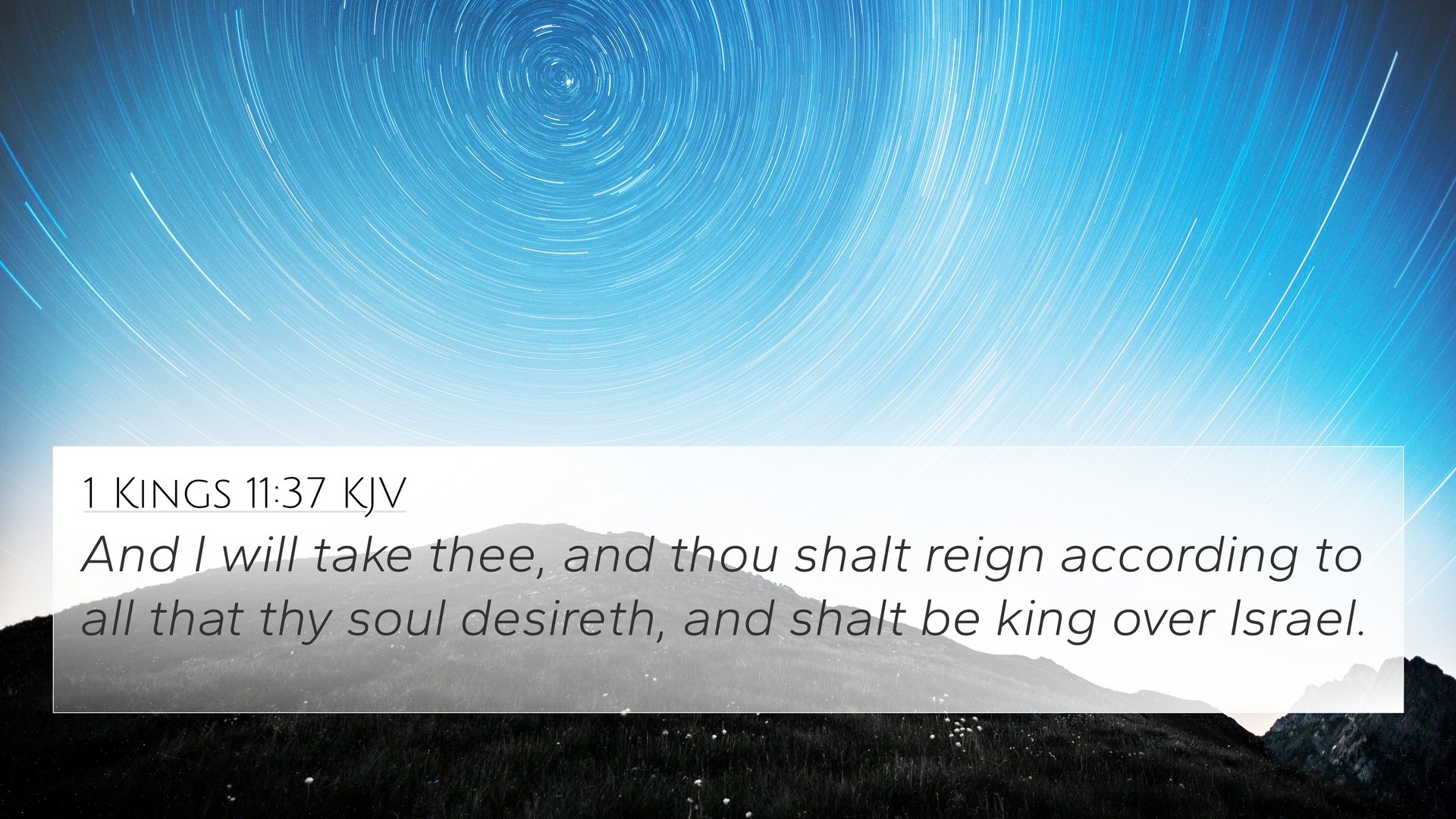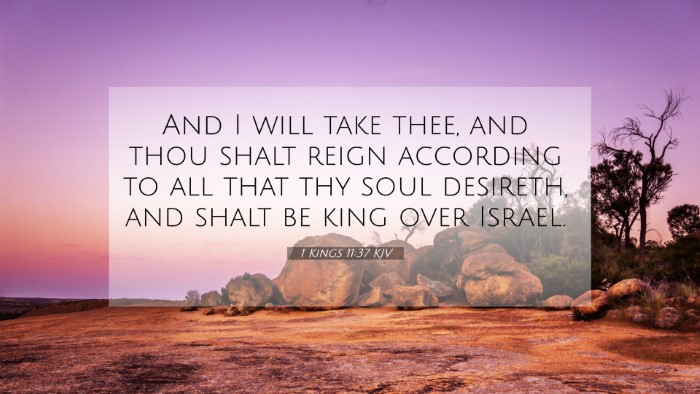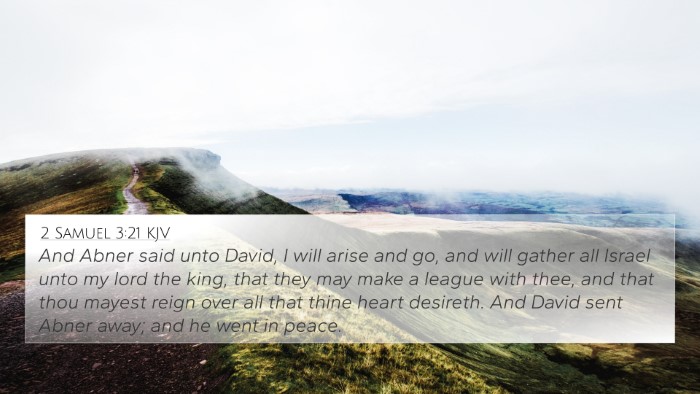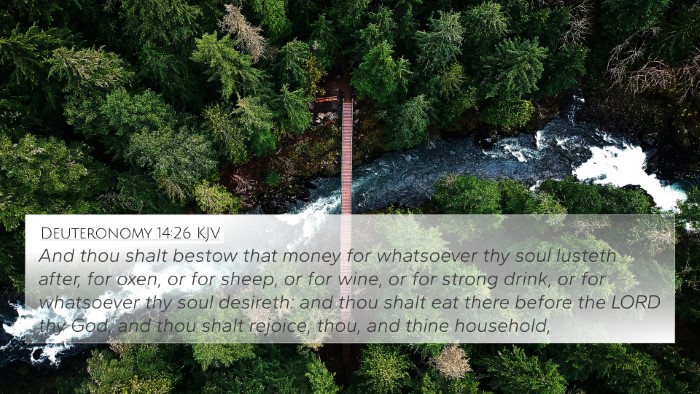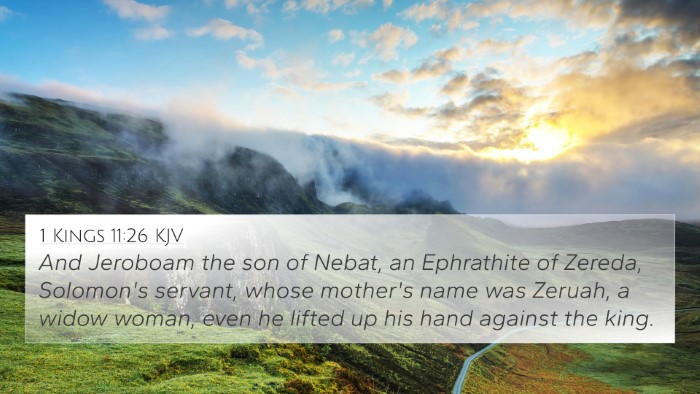Understanding 1 Kings 11:37
Verse Context: 1 Kings 11:37 states, "And I will take you, and you shall reign over all that your soul desires, and you shall be king over Israel." This verse is part of God's promise to Jeroboam, a servant of Solomon, positioning him as a ruler over Israel.
Verse Meaning and Analysis
This verse carries significant implications about kingship and divine selection. Here, we explore various perspectives from noted public domain commentaries to understand its meaning:
-
Matthew Henry's Commentary
Henry emphasizes that God’s provision for Jeroboam illustrates the principle that God raises leaders according to His own plans, often amidst human failure. The promise of kingship reflects both God’s sovereignty and His faithfulness to His covenant with Israel.
-
Albert Barnes' Notes on the Bible
Barnes notes that this call signifies a divine favor bestowed upon Jeroboam, distinguishing him as a leader among the people. He highlights how this promise not only elevates Jeroboam but also serves as a divine response to the apostasy under Solomon's reign.
-
Adam Clarke's Commentary
Clarke discusses the prophetic nature of this promise and links it to the bigger narrative in Israel's history. He indicates that Jeroboam’s future role is foreshadowed here as a means to demonstrate God’s control over Israel, even in its divisions.
Cross-References
Several other scripture passages resonate with 1 Kings 11:37, highlighting its themes or providing further context:
- 2 Samuel 7:12-13: God's promise to David regarding his descendants and the establishment of a dynasty.
- 1 Kings 12:16-20: The division of the kingdom under Jeroboam’s leadership after Solomon's death.
- 1 Kings 14:7-10: Prophecy against the house of Jeroboam as a consequence of turning away from God.
- Isaiah 9:6-7: Prophecy detailing the rule of a coming king, echoing the themes of divine kingship.
- Romans 13:1: The biblical principle that all authority is established by God, resonating with God's control over leadership.
- Jeremiah 23:5-6: A messianic prophecy concerning a righteous ruler from David's line.
- Ezekiel 34:23-24: God’s promise to appoint a shepherd for His people, pointing to His ongoing concern over leadership.
Thematic Connections
This verse encapsulates several prominent biblical themes:
- Divine Authority: God's sovereignty in the selection and empowerment of leaders is a recurring theme across scripture.
- Human Fallibility: The context of Jeroboam's selection amidst the failures of Solomon illustrates God’s grace in providing governance.
- Covenantal Faithfulness: God's commitment to His promises despite Israel's disobedience underlines His faithfulness as explored throughout the Old Testament.
Conclusion
In summary, 1 Kings 11:37 is a pivotal verse that not only speaks to Jeroboam's future but also reflects larger themes of divine leadership, human agency, and the fulfillment of God's promises. The cross-references provided facilitate deeper understanding, enabling believers to explore the connections and implications of biblical texts. By embracing the tools for Bible cross-referencing, such as a Bible concordance or cross-reference guide, the reader can enrich their study and interpretation of scripture, revealing the intricate web of connections woven throughout the Bible.
